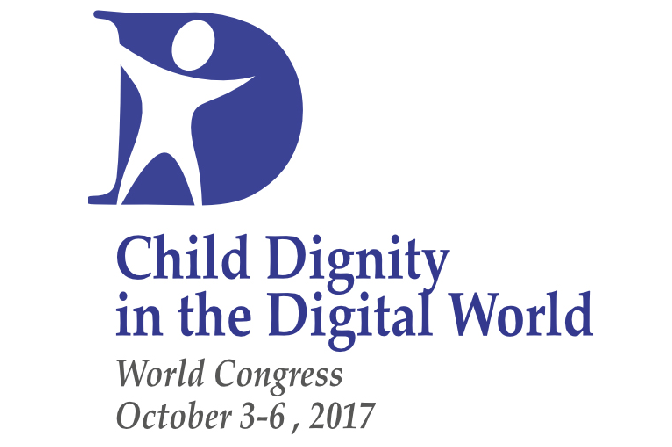Article
Events & Campaigns
Child Dignity in the Digital World
Child Dignity in the Digital World congress was held in Rome on October 3-6. This Congress organised by Pontificia Universita Gregoriana with support from WePROTECT Global Alliance and Telefono Azzurro, saw child protection specialists and stakeholders from around the world gather to discuss combating child abuse. Workshops followed speaker presentations wherein participants discussed and crafted the declaration that was presented to the Pope on the last day.
The first day of the congress saw speakers from academia presenting research and findings on child sexual abuse including a study on victimisation, perpetrators and the impact of child abuse on children. The second day of the Congress had speakers ranging from corporates to international development organisations to clergy with insights from their regions and how their organisations combat child sexual abuse. Some of the highlights of these two days of the congress are captured below.
Janis Wolak a researcher at the University of New Hampshire noted that the advent of the digital age has not created new types of abuse and exploitation. Dr. Michael Seto, Royal Ottawa Health Care Group elaborated on the characteristics of the offenders while Ethel Quayle from the University of Edinburgh delved into why perpetrators commit these offenses. Tim Morris from Interpol and Mario Calvo-Platero, a journalist, both, highlighted in their talks that though the dark web hosts 2% of content on child abuse, 80% of the traffic on the dark web is related to this area. Antigone Davis from Facebook and Jacqueline Beauchere, Microsoft spoke about the measures taken by their respective companies towards tackling online child sexual abuse material.
David Finkelhor, University of New Hampshire, spoke about the challenges of youth programmes and recommended creating alliances among existing programmes. While presenting the Global Kids Online programme, Jasmina Bryne from UNICEF emphasised the need for a child-centric approach and the importance of a multi-stakeholder approach. H.E. Cardinal John Njue, Archbishop of Nairobi and H.E. Cardinal Luis Antonio Tagle, Archbishop of the Philippines both provided an insight in the developing countries in Africa and Asia by talking about the political, structural and societal landscapes in these continents as well as the challenges facing these countries.
On the final day of the Congress, participants had a papal audience to present the declaration of Rome to Pope Francis. The declaration provides a call to action to varied stakeholders to combat child sexual abuse. Some of these include creating and increasing awareness among people, implementing legislations to better protect children and increasing global cooperation as these crimes cross borders.
In his address, Pope Francis acknowledged the importance of protecting the dignity of minors in the digital world. The Pope assured the audience of the Catholic Church’s support and commitment towards tackling this issue of combating child abuse, exploitation, trafficking and all forms of violence against children.

Photo by INHOPE
"The advent of the digital age has not created new types of abuse and exploitation."
'